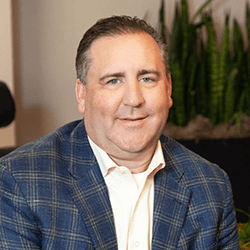Why Pressure Has No Place in Good Salesmanship
There are strong sales people and there are weak sales people. The sales people that we all dislike—the used car, widget selling, time share type sales people—are not very good sales people. Not all of them are weak, but the ones who are use scripts, pressure, and trapping situations to make it difficult to say no to them.
We avoid sales people who:
Sell features and benefits. It makes us feel like we're paying too much or don’t need what those features and benefits offer us.
Trial close. “If I am able to provide you with a solution that fits all of your needs…would you buy it?” because it makes us feel trapped into saying yes.
Put us in situations where “Yes” is the only option. We feel we have no way to say no. This is where “I want to think this over” was born.
Fight us when we object or disagree. It makes us feel like their opinion is the only opinion allowed.
Have an answer for everything. We feel like no matter what we think, we're wrong. Nobody likes to feel wrong.
Going for a “Yes” is where pressure enters the sales call.
So none of this applies to you or your people, right?
It might surprise you that the #1 thing that people using these tactics say is “I would never put pressure on people when selling” or “I don’t really want to sell, so I would never do that.”
The reason is simple: they want to be different. They don’t want to be typical sales people. They work so hard to be different that they abandon who they are, how they would act naturally, and how they would have a normal conversation in order to get a “Yes” from a prospect that they inadvertantly do some or all of the things above.
So we all know that putting pressure on people is not what we want to do as sales people.
The fix is simple:
- Make “No” a perfectly acceptable decision.
- Agree with and discuss objections like normal people.
- Don’t argue or fight with people about their reasons for questioning doing business with you.
Not so much. You want a “Yes”, but you're afraid that suggesting “No” is an ok response will result in them saying it. That is the entire issue at its core. You want the “Yes” and you need the sale.
Selling begins with getting “No.”
Strong sales people are strong because they know that the prospect will fight to buy from them if it makes sense and solves their problem. So they spend all of their time making sure that they fully understand the problem, figuring out if their solution makes sense, and then asking the prospect what they want to do next. You have been sold things by these people. You were in control. You knew that “No” was an option, but you didn't want to say no. That is the difference.
Think about removing all of the pressure in your next sales call by making “No” an option and what that might do to improve your conversation. Would it lower defensiveness? Would it cause the prospect to really evaluate things?
Trust me. If a “Yes” is meant to be, you're more likely to get one.



